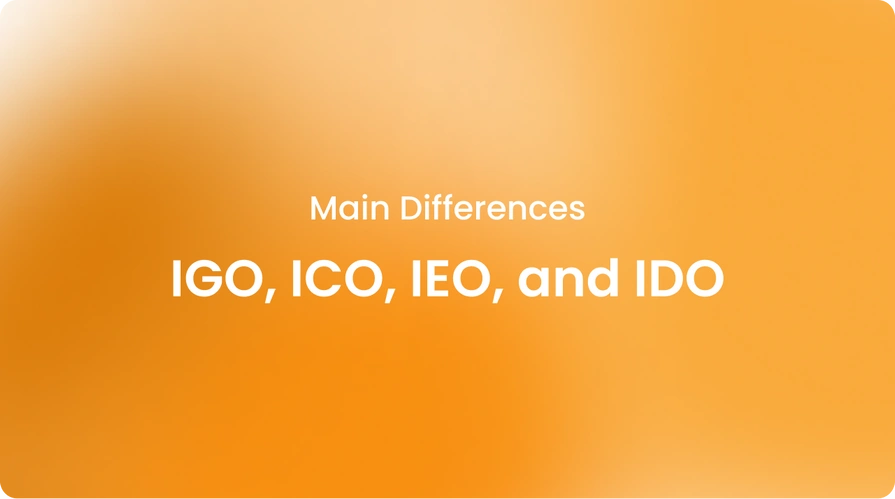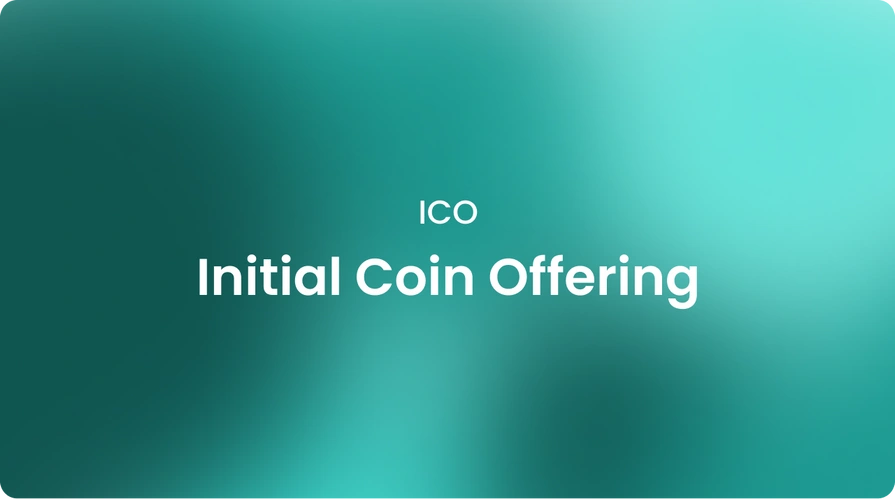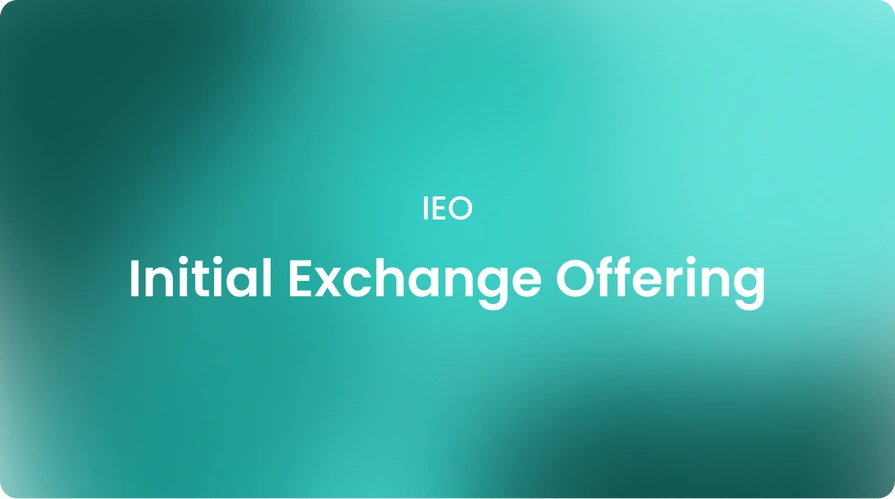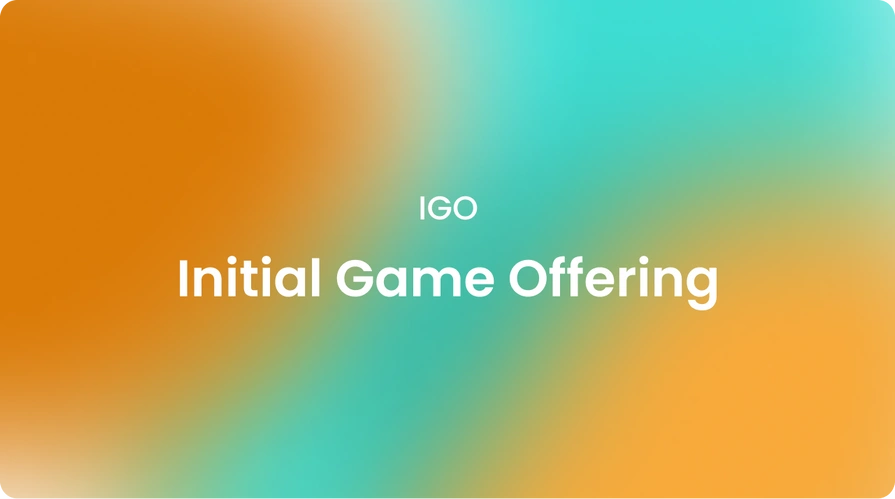|crypto, knowledgehub
Differences Between IGO, ICO, IEO, and IDO

As the blockchain and cryptocurrency space continues to evolve at a rapid pace, innovative new models for project fundraising have emerged, such as IGO, ICO, IEO, and IDO.
Venture capital and initial public offerings used to be the primary options. Technologies like decentralized finance (DeFi) have opened the door to a whole new world of possibilities.
In this article, we'll explore four of the major fundraising methods that have arisen in recent years: initial coin offerings (ICOs), initial exchange offerings (IEOs), initial game offerings (IGOs), and initial DEX offerings (IDOs).
While they may sound similar, each comes with its own distinctive approach. Let's break down the differences between each crypto fundraising model and learn more about their pros and cons for businesses!
New ways of fundraising in the digital era
No matter the financing route, what remains clear is that blockchain technology has permanently transformed how startups can raise capital globally. Gone are the days where companies relied solely on venture capital or banks to get off the ground.
Thanks to cryptocurrencies and decentralized services, exciting ventures from all corners of the world now have access to investment opportunities that simply didn't exist before. This greater accessibility is helping empower founders to pursue bold new ideas without traditional geographic limitations.
Promising initiatives and apps can be built that otherwise may have been confined to a single region. In turn, this creates an open marketplace of products, tools, and experiences for users everywhere to enjoy. Crypto service platforms like Cryptobunq are at the forefront of enabling this vision.
So whether it's an ICO, IEO, IDO, or IGO, we're witnessing the democratization of fundraising unfold before our eyes. Far from a fleeting trend, these emerging crypto-native models show real potential to reshape industries and put more control in the hands of creators.
Initial coin offering (ICO)
As one of the earliest forms of crypto fundraising, ICOs allowed projects to generate capital by issuing custom crypto tokens and selling them to early backers. While an ICO provided easy access to global investors, it came with drawbacks.
Many initial coin offerings lacked regulatory oversight, which led to cases of fraud. Additionally, the requirement for startups to independently list their tokens afterward resulted in a lack of guaranteed liquidity.
Pros
- Low barrier to entry, with no middlemen involved.
- Projects set their own terms and maintained full autonomy.
Cons
- Lacked regulations, which enabled scams to proliferate.
- Tokens had no guaranteed liquidity post-funding.
Initial exchange offering (IEO)
To address the downsides of ICOs, centralized exchanges began facilitating initial exchange offerings. Here, projects launch crypto token sales through the exchange, which subjects them to KYC/AML checks for added legitimacy.
While exchanging vet offerings, investors benefit from buying into early projects at a discount. Listings after an IEO ensure immediate liquidity.
Pros
- Higher credibility through exchange screening.
- Instant post-sale liquidity via exchange listing.
Cons
- Crypto exchanges charge high commission fees.
- Projects have less control over the process.
Initial game offering (IGO)
Similar to an ICO or IEO, an initial game offering involves the pre-sale of a game's in-game currency to help finance its development. This model became popular as blockchain infiltrated the gaming world.
One benefit is that it allows communities to invest in and influence blockchain games early on. However, without established markets, liquidity post-IGO is still a challenge many projects face.
Pros
- Gamers can invest in and shape future titles.
- Projects gain capital from dedicated communities.
Cons
- Liquidity remains an issue for most game currencies.
- Success relies heavily on the game's eventual popularity.
Initial DEX offering (IDO)
As the crypto industry's preferred avenue today, initial DEX offerings see projects launched on decentralized exchanges. Second of all, buyers secure allocations by staking exchange-specific tokens.
This grants projects quick capital while ensuring future crypto trading. IDOs also dodge regulation by operating permissionlessly across borders.
Pros
- Instant liquidity via DEX listings.
- Low barriers exist for both projects and investors to participate.
- Regulatory avoidance via decentralization.
Cons
- Price volatility comes from limited liquidity pools.
- Scams are still possible due to low entry barriers.
What is the difference between IEO and IDO?
Initial exchange offerings take place on centralized crypto exchanges, whereas initial DEX offerings take place on decentralized exchanges (DEX), which do not depend on a single company and uphold decentralization.
Additionally, IEOs provide more security through exchange vetting but are less decentralized than IDOs, which retain community control.
What is the difference between IGO and IDO?
Both IGO and IDO are fundraising models for new blockchain projects. However, IGO specifically refers to token-generation events focused on the gaming industry.
They allow new blockchain games to present their concepts and monetization models to backers, with the goal of supporting game development. IDOs, on the other hand, are more universal and are applicable to any blockchain project, not just those related to gaming.
What is the difference between an IDO and an ICO?
While both ICO and IDO involve the initial offering of a project's tokens, the key difference is decentralization. Initial coin offerings took place directly off exchanges through a project's website, ensuring full centralization around the core team.
On the other hand, initial DEX offerings occur on DEXs, removing reliance on a single group and upholding decentralization principles.
ICO vs. IEO vs. IDO vs. IGO: What are the main differences?
The main differences between these crypto fundraising models boil down to:
- ICOs are fully centralized around projects.
- IEOs add vetting through centralized exchanges.
- IDOs are decentralized via DEX fundraising.
- IGOs focus specifically on blockchain games.
Newer models like IDO try to capture the upsides of vetting through platforms like IEOs while maintaining decentralization principles important to the crypto community.
With new fundraising avenues continuing to evolve, it provides promising opportunities for innovative blockchain projects to get off the ground.
The bottom line
The introduction of new fundraising routes like IGO, ICO, IEO, and IDO has transformed how startups access early-stage funding. Each model brings a unique approach but ultimately aims to crowdsource crypto investment on a global scale using blockchain technologies.
Options will continue branching out as the space matures. Already, we see hybrid structures evolving that merge various strategies. Core differences remain between centralized and decentralized mechanisms, as well as between general token launches and industry-specific verticals like gaming.
For users, platforms like Cryptobunq support straightforward participation across diverse funding opportunities. By making crypto accessible, such services help passionate builders worldwide bring innovative ideas to life that otherwise may have gone unseen.
The future promises ever more collaboration across borders to push boundaries—truly an exciting time in this new era of fundraising opportunities. Therefore, having a secure crypto service provider by your side is important. Cryptobunq is a one-stop-shop crypto service provider that you can trust.
CBQ offers numerous blockchain services such as tokenization, crypto checkout and invoicing, crypto exchange API, crypto batch payments, node as a service, custody and wallet, and more that can fundamentally change your business for the better. Contact us today and explore our expert services!
















